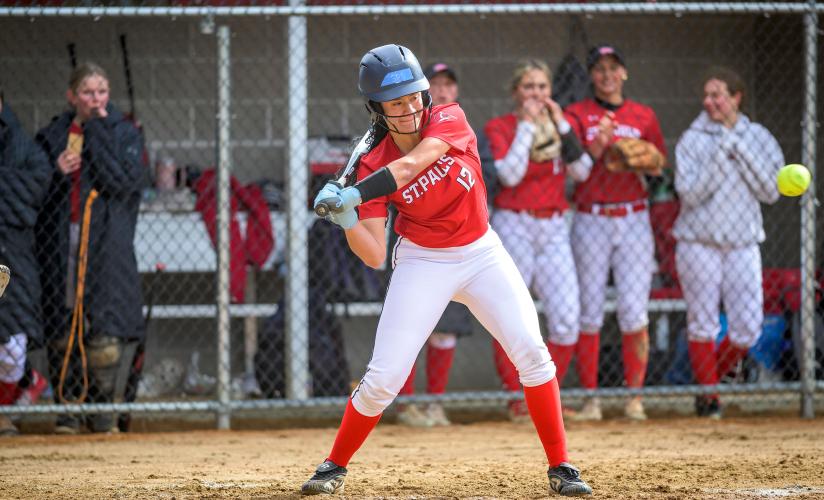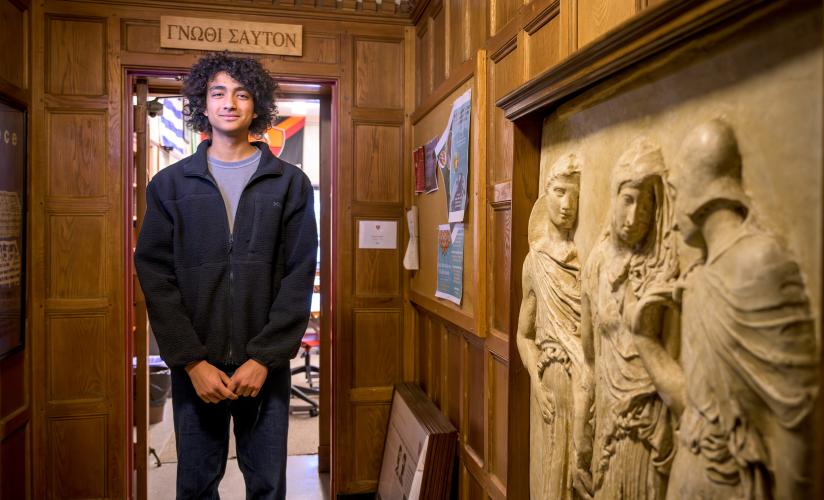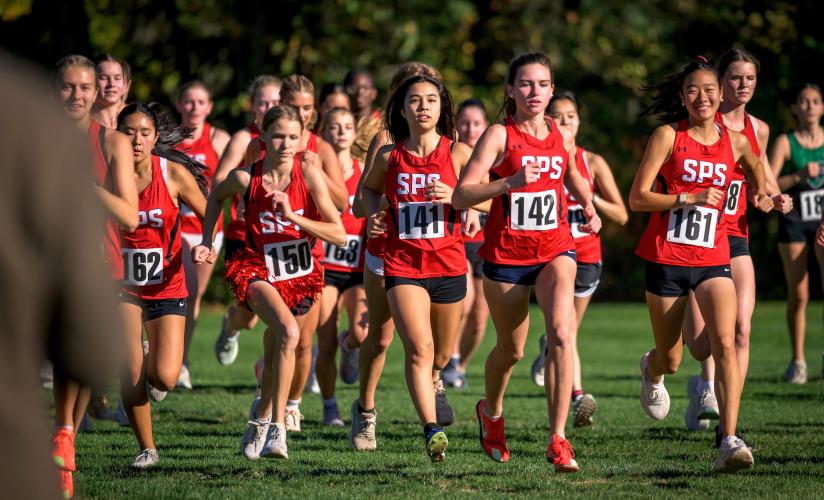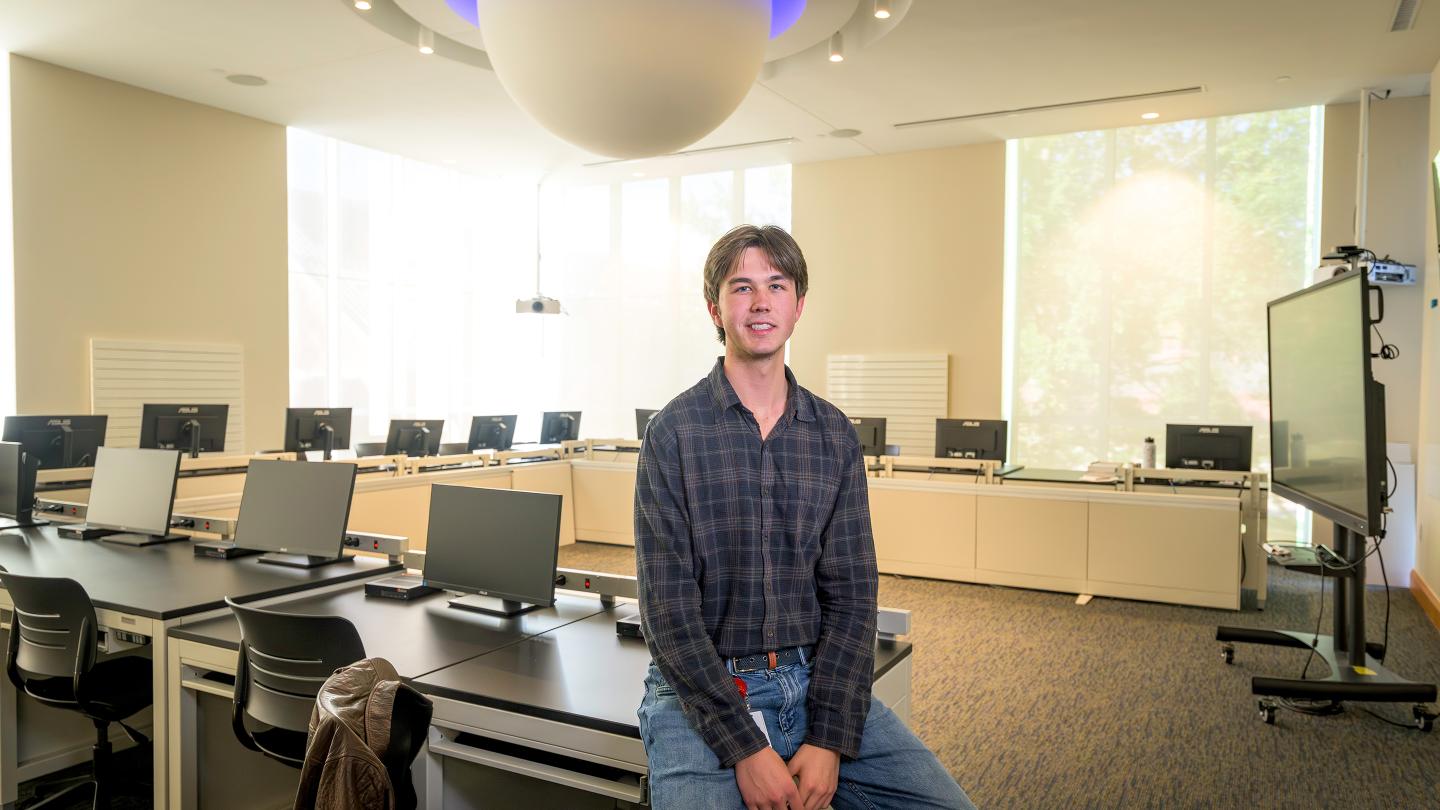

STEM subjects are just the start of the passions Thomas Armstrong ’26 has pursued at St. Paul’s School.
BY KRISTIN DUISBERG
Thomas Armstrong ’26 spent his summer immersed in astronomy and physics, completing both a five-week astrophysics research Summer Science Program project at Colby College and a seven-week Applied Science and Engineering Program (ASEP) externship in theoretical cosmology through the University of North Carolina-Chapel Hill’s Department of Physics and Astronomy. This fall, he’s exploring the far reaches of the St. Paul’s School math, science and languages departments, taking seminar classes for math and Chinese and a special advanced topics class in quantum mechanics in addition to his ASEP capstone and a humanities elective on capitalism. But ask the Sixth Former to talk about his time at SPS, and you might end up hearing instead about his involvement with the theater program — he’s stage-directing the Fall Term production of “Frankenstein” — or why it means so much to him to serve as a prefect this year.
The middle of three brothers raised on an 80-acre horse farm in Tennessee, Armstrong applied to boarding schools for high school because he was looking for broader educational opportunities than he could find at home. “But it was really the community here at St. Paul’s that sold me,” he says. “It’s a place where it’s easy to find things to do that make you feel like you belong.”
The sense of community was what drew Armstrong to theater as a Fourth Former, convinced by a friend to try his hand at tech, and what informs his work with younger students as a prefect. “It’s kind of cool to see all of them come here and know nothing and then quickly get acclimated to what St. Paul’s is like,” he says of his residential leadership role. That appreciation for younger students’ growth also extends to Armstrong’s involvement with the School’s peer tutoring program. “I’ve always just enjoyed working with younger students who were maybe struggling a bit and seeing them improve.”
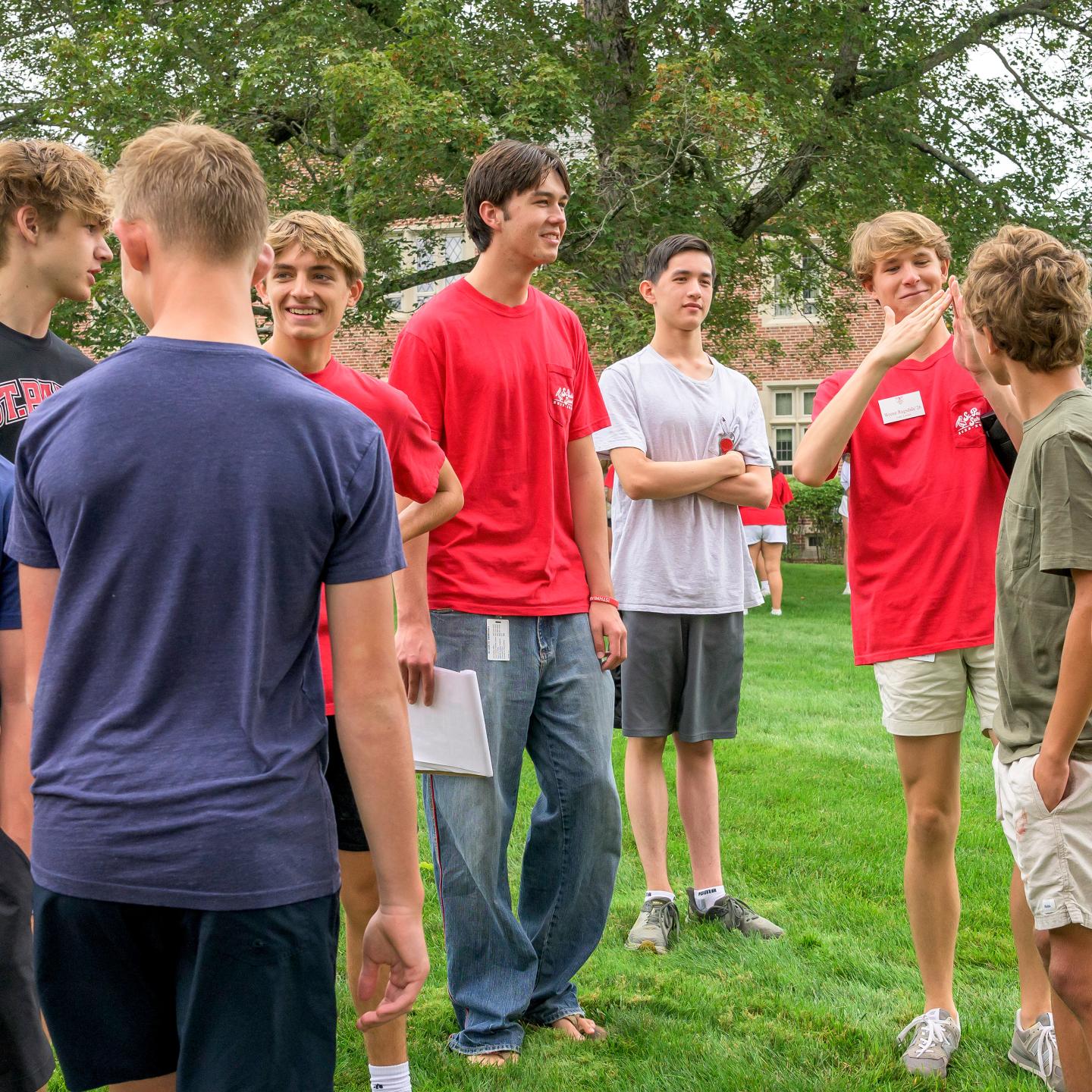
[I]t was really the community here at St. Paul’s that sold me. It’s a place where it’s easy to find things to do that you make you feel like you belong.
For his own part, Armstrong says it’s important to have outlets that exercise his brain in ways that complement the pure math and science topics he pursued over the summer. At Colby, he was part of a cohort of rising high school seniors who worked on a project to determine the orbits of asteroids, then wrote a professional-level journal article about their work. At UNC, he joined the research group of theoretical cosmologist Dr. Adrienne Erickcek to dive into calculations central to modern theory regarding the manner in which the universe today came into being.
“On the tip of the iceberg level, the broad scope of the project is determining when the first stars of the universe, which are made up of subatomic particles called baryons, were formed,” Armstrong explains. A little deeper into the iceberg, Armstrong used a software program called CLASS and astrophysics’ linear perturbation theory to determine the velocity with which baryons move as well as the minimum mass of gravitationally attracting energy — what we know as dark matter — required to pull in baryons, and once they have collapsed into stars, form the galaxies. If the work doesn’t sound daunting enough, Armstrong also was the only high school student working on the project; the remainder of the team was made up of upper-level undergraduates and graduate students from Erickcek’s cosmology group.
“It was a little bit intimidating introducing myself saying I was going to be a senior in high school, but it was very cool to see how supportive all the graduate students were of me, and all the undergrads that were willing to help,” he says. As he continues to work on a capstone project this fall that tests some of astrophysics’ existing theories regarding the formation of the universe — generating data he hopes to have the opportunity to compare to information currently being gathered by the James Webb Space Telescope — he says the experience solidified his interest in pursuing research in college … though he’s not yet sure to what end. “For undergrad, I want to try to do as much research as possible to confirm that passion, if that makes sense,” he says.
It makes sense indeed, considering the breadth and depth of Armstrong’s interests. In May, during the 2025 Graduation Week awards ceremony, good-natured laughs rippled through Matthes Cage as he was called up to receive one academic accolade after another (six in all) recognizing his contributions in math, science, Chinese and overall character and scholarship. This winter, he’s going to be using one of his awards, the Thomas Penrose Bennett Prize, to build a telescope and create a lab around it that can be integrated into the School’s galactic astronomy curriculum; for the past year and a half, he’s hosted an astronomy-focused podcast with two SPS friends. Somehow, in addition to his other pursuits, Armstrong has also found time to row on the SPS varsity crew and to serve as a student head for the Chinese Society.
Looking back at his first three years at SPS, Armstrong says that some aspects of his journey might have come as a surprise to him — particularly his experience in Chinese, a language he initially picked up because he thought it would be a challenge. SPS Chinese Teacher and Languages Department head Zhaohong “Jenny” Li, however, ignited his passion for the language and has served as both a mentor and an inspiration in her genuine care for her students and the way she shapes her teaching around individual learners’ needs. “Ms. Li has been a large influence on my experience at St. Paul’s,” he says. “Just keeping my mind open to trying new things and letting my curiosity lead me has led me to surprising places.”

